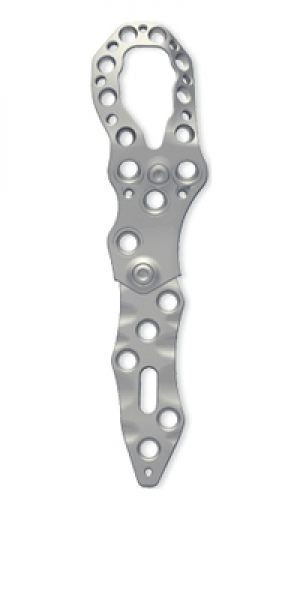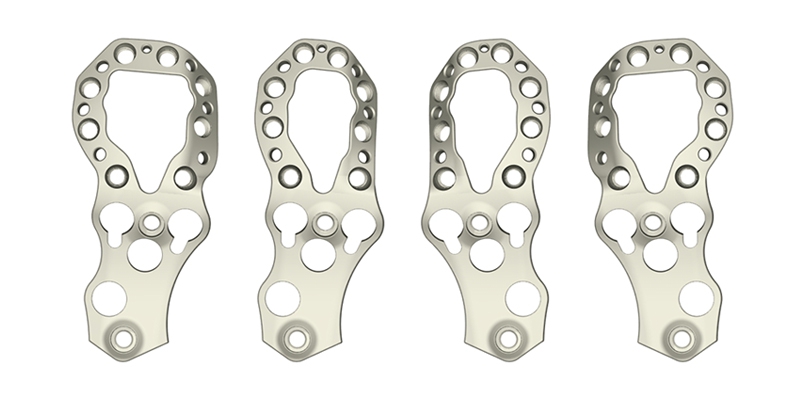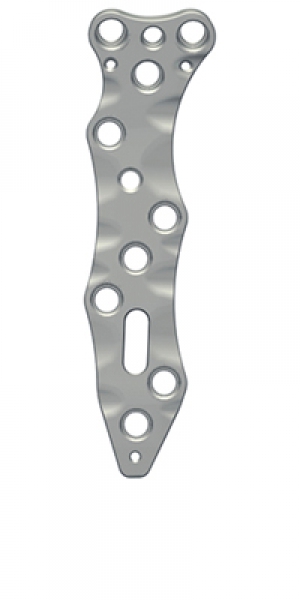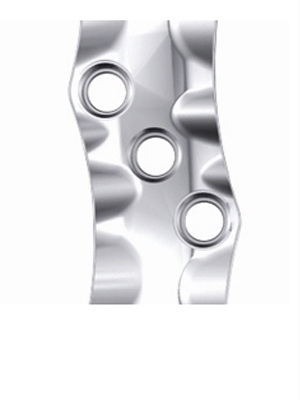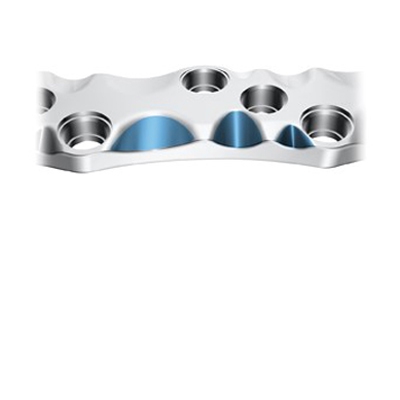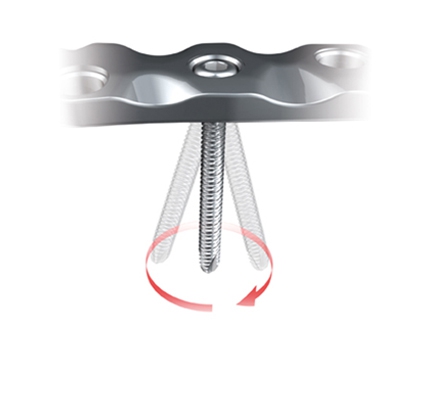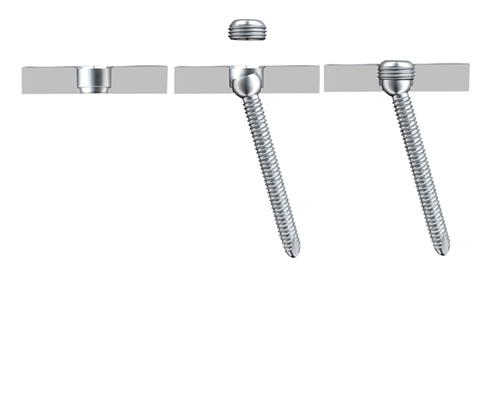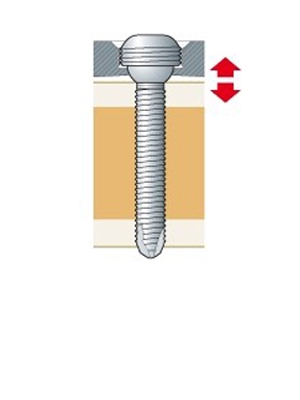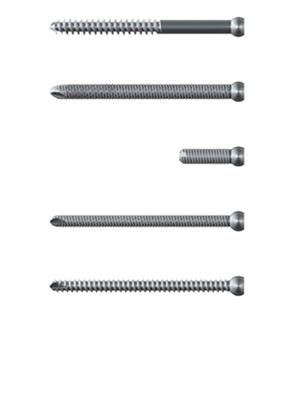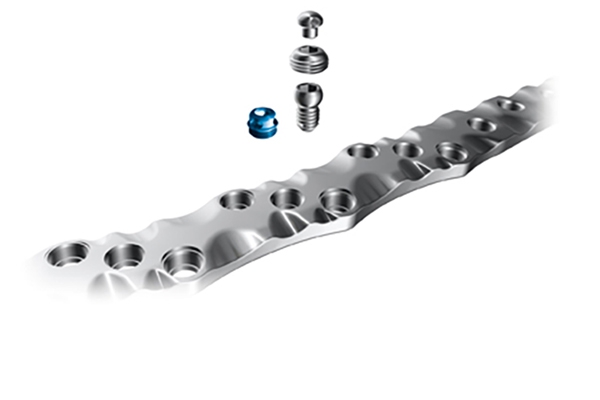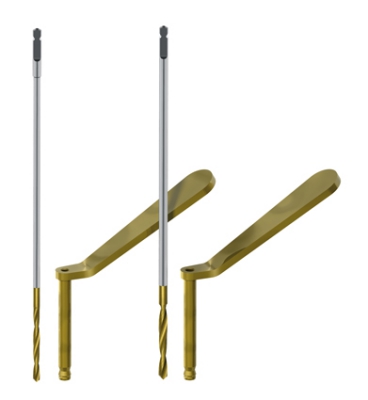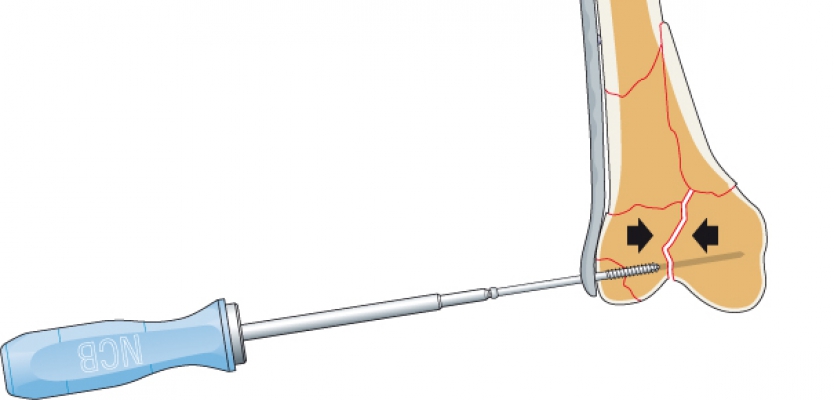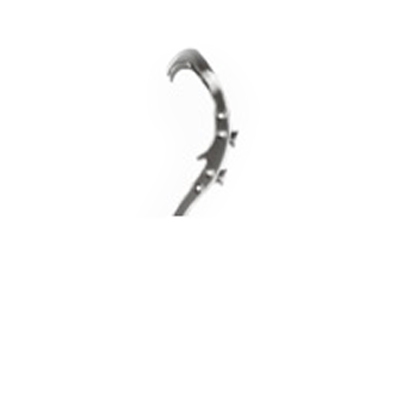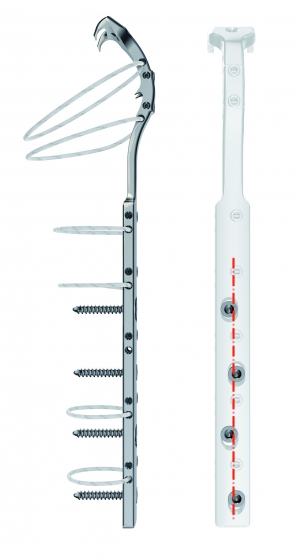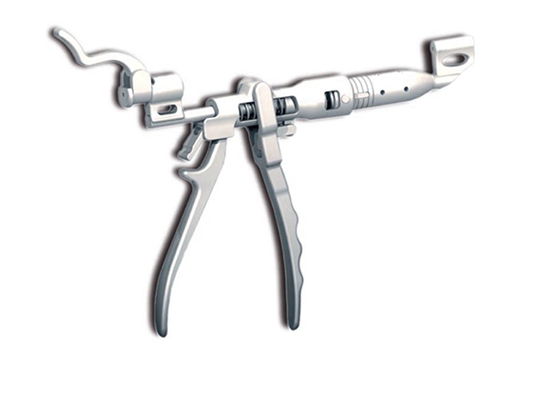https://www.zbinetworkemea.com/fracture/index.php/planning/vancouver-a#sigProId048e09fd25
NCB Periprosthetic Trochanter Plate
The NCB Periprosthetic Trochanter Plate always needs to be assembled with a NCB Periprosthetic Proximal Femur Plate. It is available in two different sizes (different width) whereas the height is the same. Due to the anatomical shape of the proximal femur a left and a right version is offered. The Trochanter Plates offer usage of 3.5mm ULS locking screws or cortical screws (non-locking) to reattach the greater Trochanter.
Download Surgical Technique NCB Periprosthetic Femur Plate System
NCB Periprosthetic Proximal Femur Plate
The NCB Periprosthetic Proximal Femur Plate is a polyaxial locking plate for the treatment of femur fractures, including periprosthetic femur fractures. Innovative plate design combined with the polyaxial NCB Locking Plate Technology offers solutions for fixation of particularly complex periprosthetic fractures.
https://www.zbinetworkemea.com/fracture/index.php/planning/vancouver-a#sigProIda7c45996ca
Diagonal Three Hole Pattern
The distal and proximal NCB Periprosthetic Plates provide a diagonal three hole pattern, which allows for multiple screw options:
• Offset holes allow for easier screw placement around the prosthesis and may allow bicortical fixation.
• The central screw holes can accommodate threaded 5.0 mm unicortical Screws, threaded Cable Buttons and Cables (when bicortical screw fixation can not be achieved).
https://www.zbinetworkemea.com/fracture/index.php/planning/vancouver-a#sigProId495e4e4c0b
Differently Shaped Scallops
• Reduced and uniform plate stiffness
• Better plate contouring across solid cross-sections, away from holes.
https://www.zbinetworkemea.com/fracture/index.php/planning/vancouver-a#sigProId7d0b685cd4
Polyaxiality
The NCB Plate Technology allows polyaxial screw placement (30° cone) with screw locking achieved through the use of locking caps that are threaded into the plate holes. The locking construct allows for improved stability especially in osteopenic bone.
https://www.zbinetworkemea.com/fracture/index.php/planning/vancouver-a#sigProId9f8e76c24e
Non-Contact Bridging
In the locked mode the NCB Periprosthetic Plate acts as an internal fixator without contact between the plate and the bone surface, which may reduce the risk of impairment to the periosteal blood supply. This Non-Contact Bridging concept can also be controlled through the use of 1, 2, or 3 mm spacers, which are threaded into the plate holes prior to plate insertion.
https://www.zbinetworkemea.com/fracture/index.php/planning/vancouver-a#sigProId0272323d98
Broad Screw Options
Five different NCB Screw types are offered with the NCB Periprosthetic Femur System, to allow both bicortical and unicortical fixation.
https://www.zbinetworkemea.com/fracture/index.php/planning/vancouver-a#sigProIdce538f1ae8
Cable Fixation Options
The NCB Cable Button, Hex Button and Cable Assembly Cerclage from the Zimmer® Cable-Ready® Cable Grip System are compatible with the NCB Periprosthetic Femur System.
Specific Instruments for Periprosthetic Fractures
Slightly oversized drill bits and drill guides are offered with the NCB Periprosthetic Femur System, that may help reduce the risk of cracks in the cement mantle when placing screws around a cemented prosthesis.
https://www.zbinetworkemea.com/fracture/index.php/planning/vancouver-a#sigProIdba1bb59b8e
Fracture Reduction
Before locking, NCB Screws can also act as lag screws. Therefore, when used with NCB Periprosthetic plates, NCB Screws can be used for fracture reduction and to apply interfragmentary compression, a feature not offered with conventional locking systems.
Cable Ready Greater Trochanter Reattachment Plate
The Cable Ready Greater Trochanter Reattachment Plate is available in short, long, and extended 4-hole and 5-hole distal lengths. The Cable Ready Greater Trochanter Reattachment (GTR) provides for accurate greater trochanteric reattachment after extended osteotomy and flexibility in addressing unexpected distal fixation needs in Revision THA cases.
Download-Surgical Technique Cable Ready Greater Trochanteric Reattachment
https://www.zbinetworkemea.com/fracture/index.php/planning/vancouver-a#sigProId741b7c1469
Contoured for Optimal Fit with Proximal Femur
The Cable Ready GTR System cradles the bone anatomically while the strategically placed proximal and distal fins provide rotational stability, helping to prevent migration of the implant.
https://www.zbinetworkemea.com/fracture/index.php/planning/vancouver-a#sigProId2e3fcd3432
Enhanced Distal Fixation
When the need for additional distal fixation is discovered pre-op or in the operating room, 4- and 5-hole extended GTR plates allow for 4.5mm titanium Trilogy® Acetabular System Cortical Bone screw fixation.
https://www.zbinetworkemea.com/fracture/index.php/planning/vancouver-a#sigProId3e286f9311
Multi-strand GTR Cable
The system features multi-strand cable, which offers greater static tensile strength and increased fatigue life when compared to mono-filament wire. This, combined with other properties, allows a reduction in the diameter without sacrificing strength. The 1.8mm diameter makes the cable more pliable, which allows for a lower profile fit around the bone.
https://www.zbinetworkemea.com/fracture/index.php/planning/vancouver-a#sigProId38eba7579c
Simplified Instrumentation
• Ergonomic instrumentation is efficient, simple to use and minimally intrusive.
• The new cable tensioner is lightweight with single-hand design operation..
• Squeeze grip movement of the handles provides a tactile feel of the tensioned cable, while the external cable allows the tension to be seen..
• The new tension retaining device design is longer and has a curved shape to enhance flexibility in accessing the fracture.

